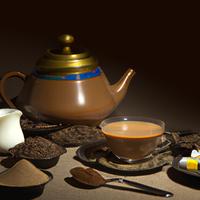
1 serving (240 grams) contains 100 calories, 5.0 grams of protein, 3.5 grams of fat, and 10.0 grams of carbohydrates.

Log this food in SnapCalorie

Nutrition Information
Calories |
100.0 | ||
|---|---|---|---|
% Daily Value* |
|||
| Total Fat | 3.5 g | 4% | |
| Saturated Fat | 2.0 g | 10% | |
| Polyunsaturated Fat | 0 g | ||
| Cholesterol | 15 mg | 5% | |
| Sodium | 50.0 mg | 2% | |
| Total Carbohydrates | 10.0 g | 3% | |
| Dietary Fiber | 0 g | 0% | |
| Sugars | 0 g | ||
| protein | 5.0 g | 10% | |
| Vitamin D | 100.0 mcg | 500% | |
| Calcium | 150 mg | 11% | |
| Iron | 0.1 mg | 0% | |
| Potassium | 200.0 mg | 4% | |
* Percent Daily Values are based on a 2,000 calorie diet. Your daily values may be higher or lower depending on your calorie needs.
Food Attributes
Source of Calories
About Milk tea without suger
Milk tea without sugar is a popular beverage in many cultures, particularly within East and South Asian cuisines. Typically made by combining brewed black or green tea with milk, it offers a harmonious blend of creaminess and bold tea flavor. This version omits sugar, making it a lower-calorie alternative to traditional sugary milk tea. The tea component is rich in antioxidants, such as polyphenols, which may support heart health and reduce inflammation. Milk adds calcium and protein, promoting bone health and aiding in muscle function. However, its nutritional value can vary depending on the type of milk used—full-fat options are higher in calories and saturated fats, whereas plant-based or skim choices provide lighter alternatives. With no added sugar, it avoids unnecessary spikes in blood sugar levels, making it suitable for those managing diabetes or reducing sugar intake. Its simple, unadulterated qualities cater to wellness-conscious tea lovers.



